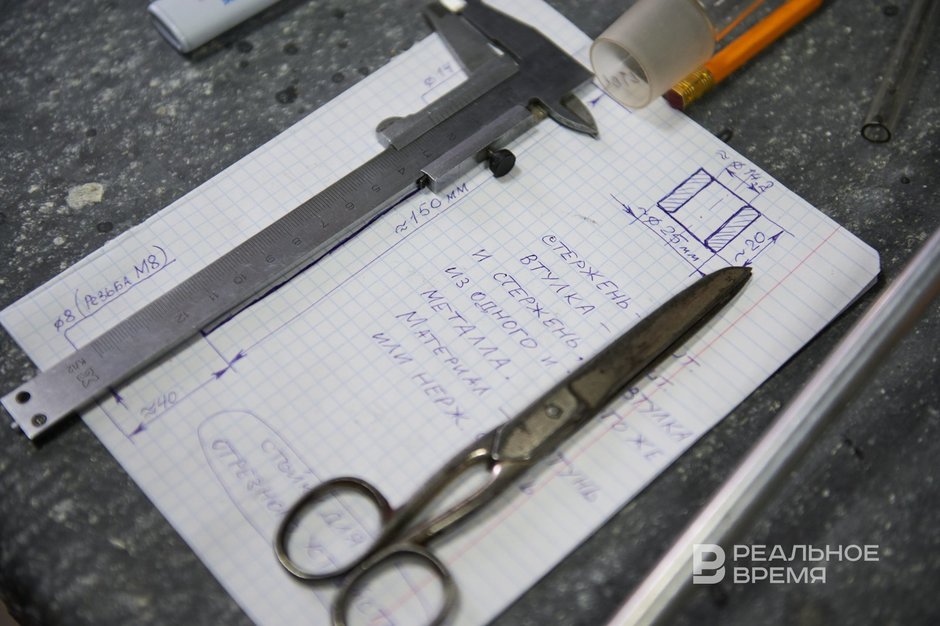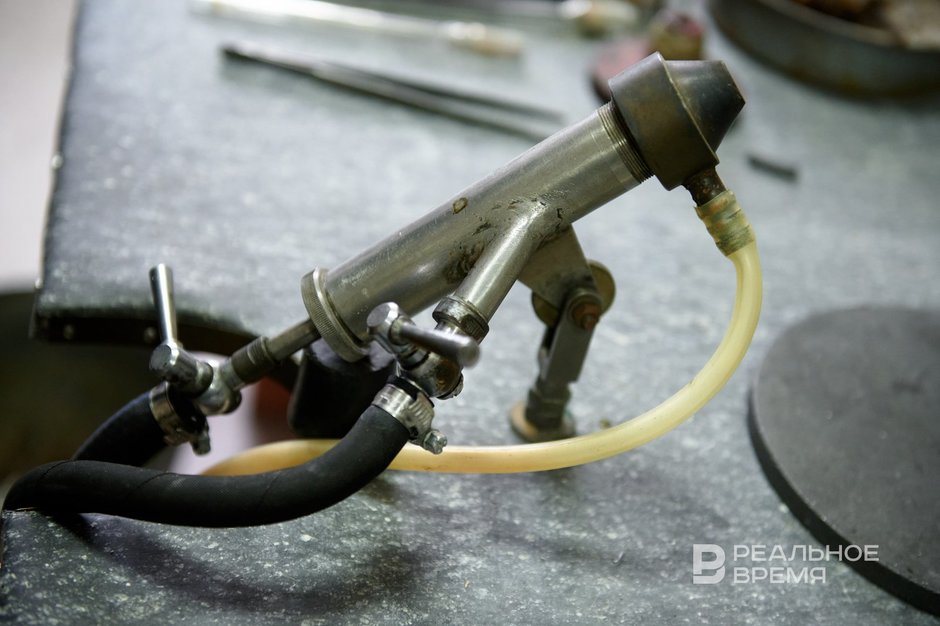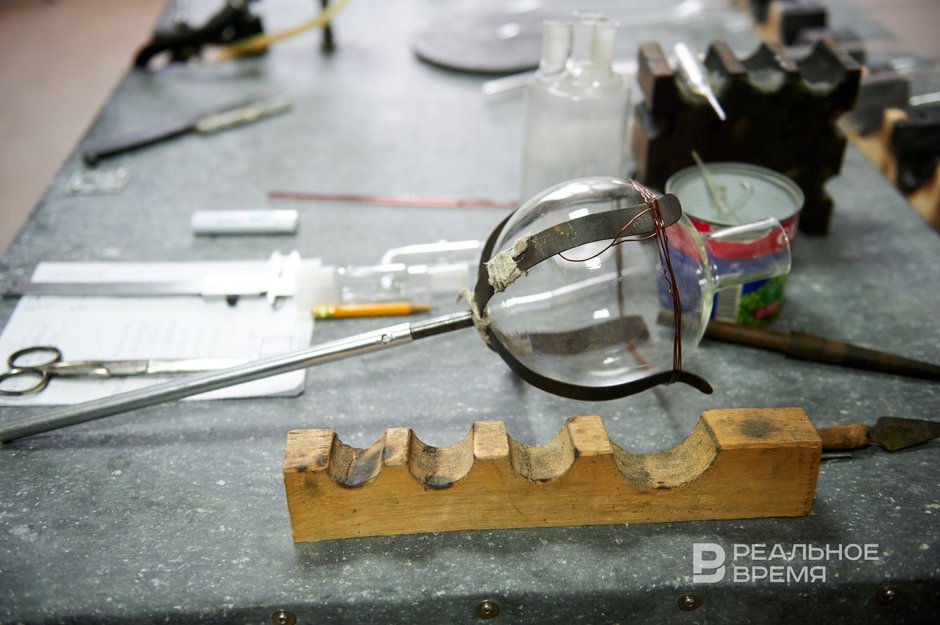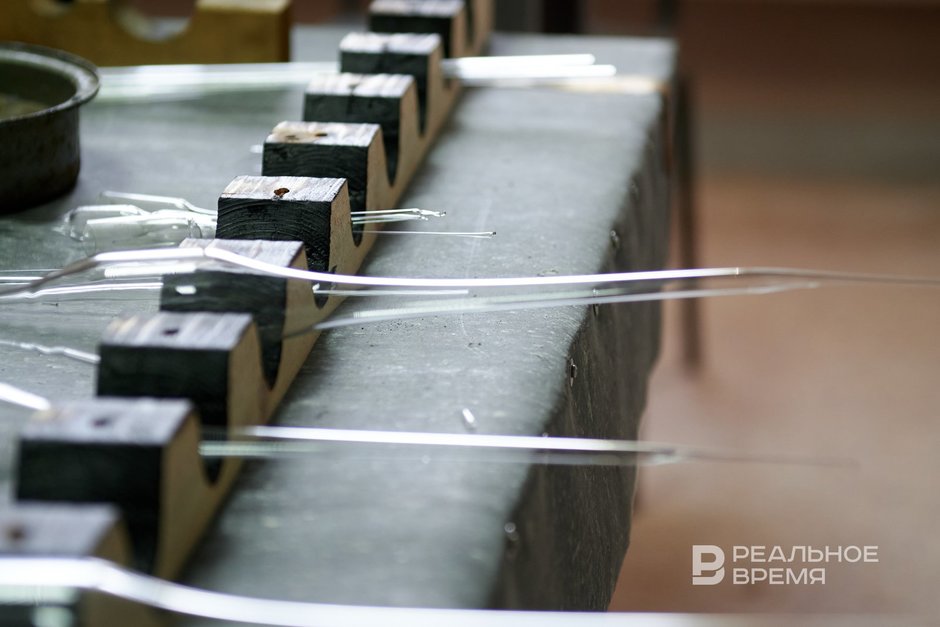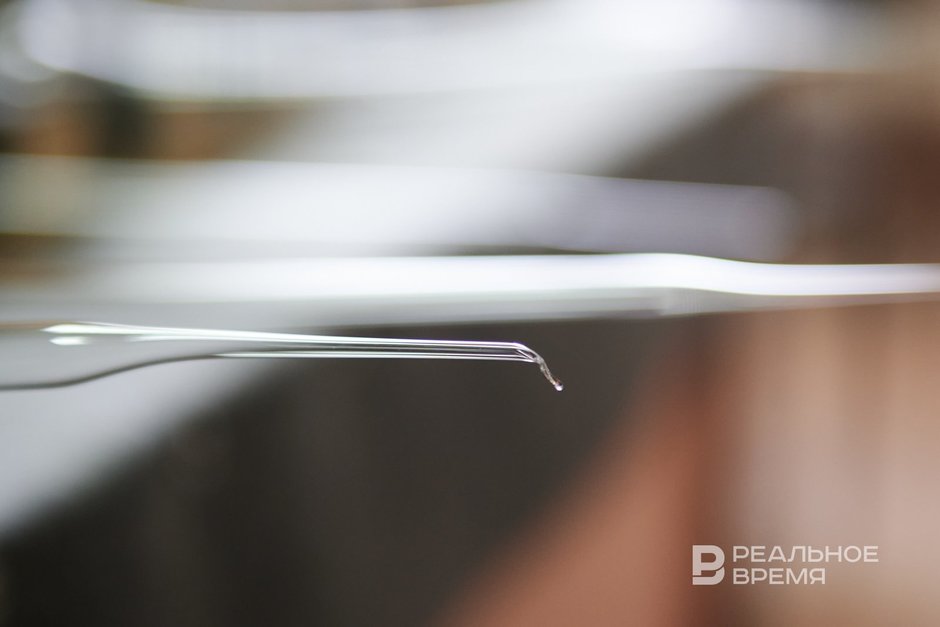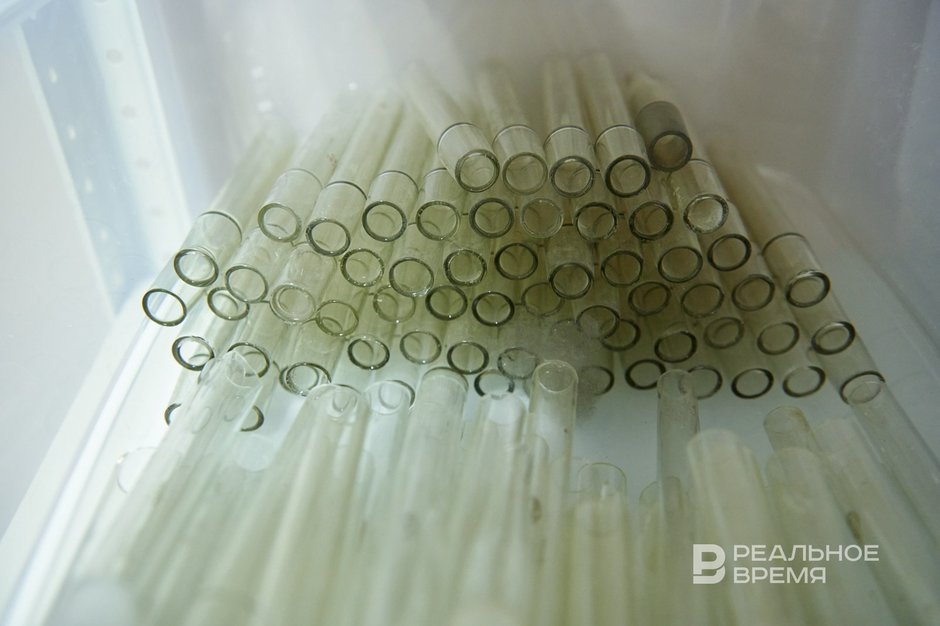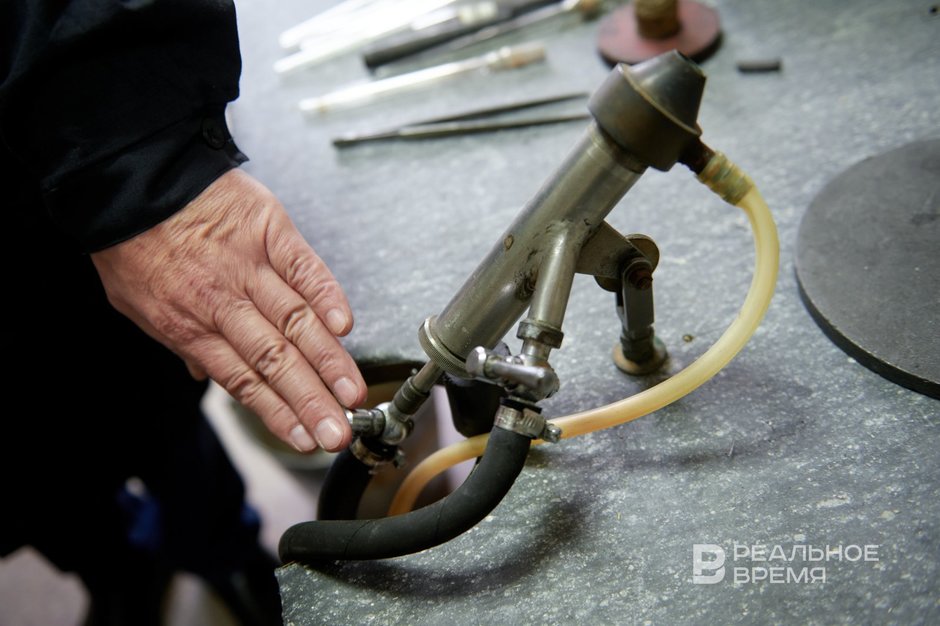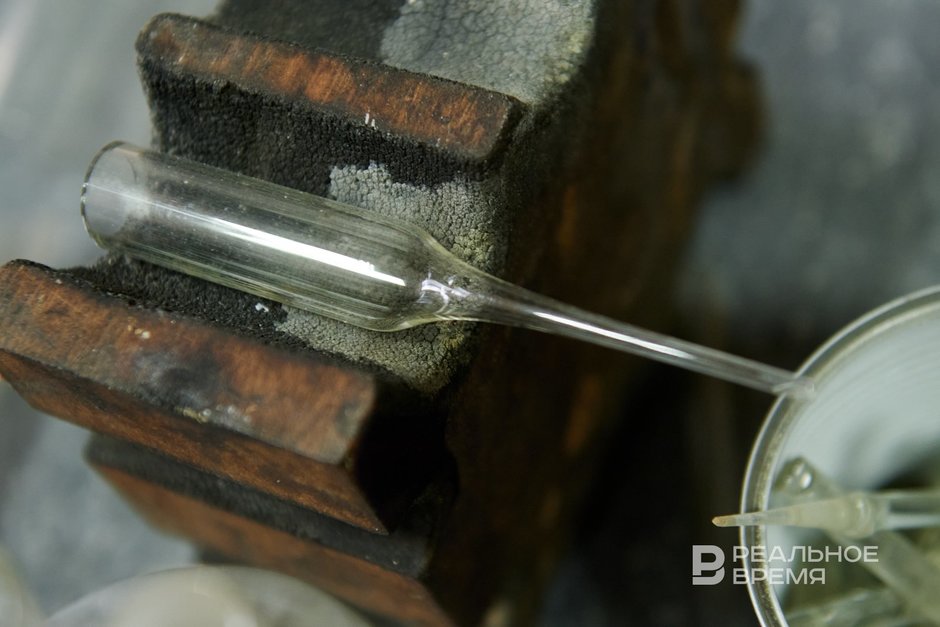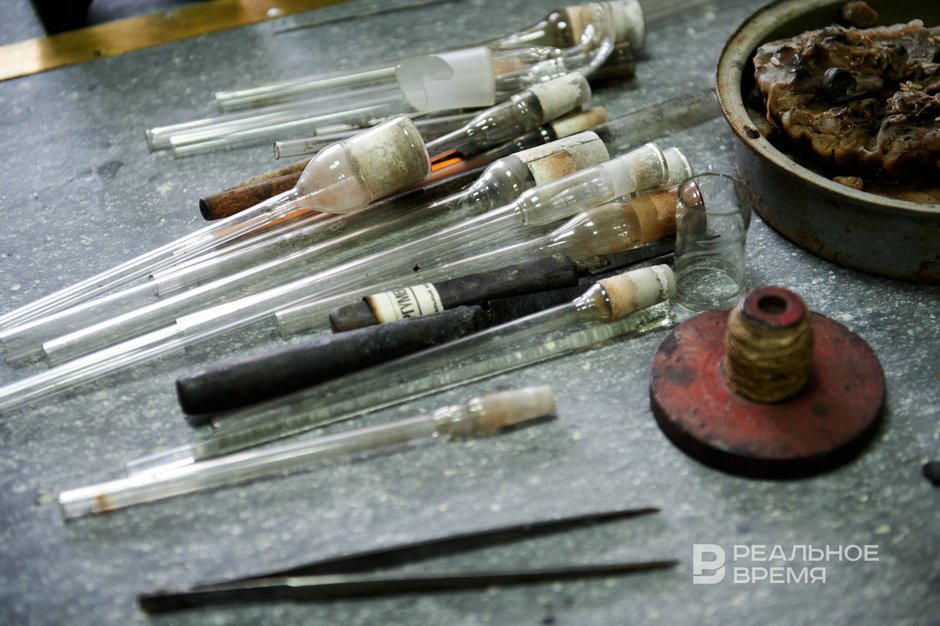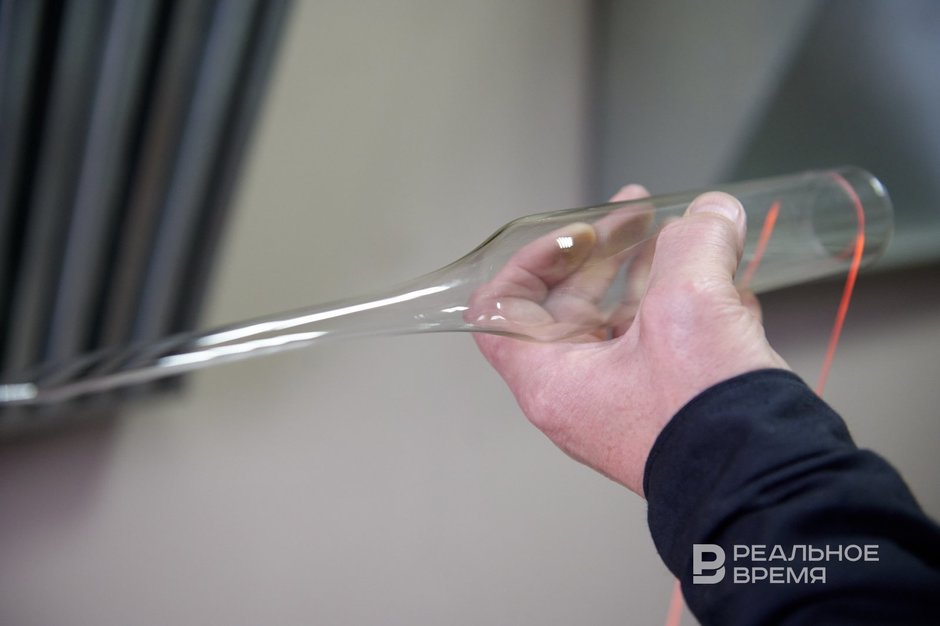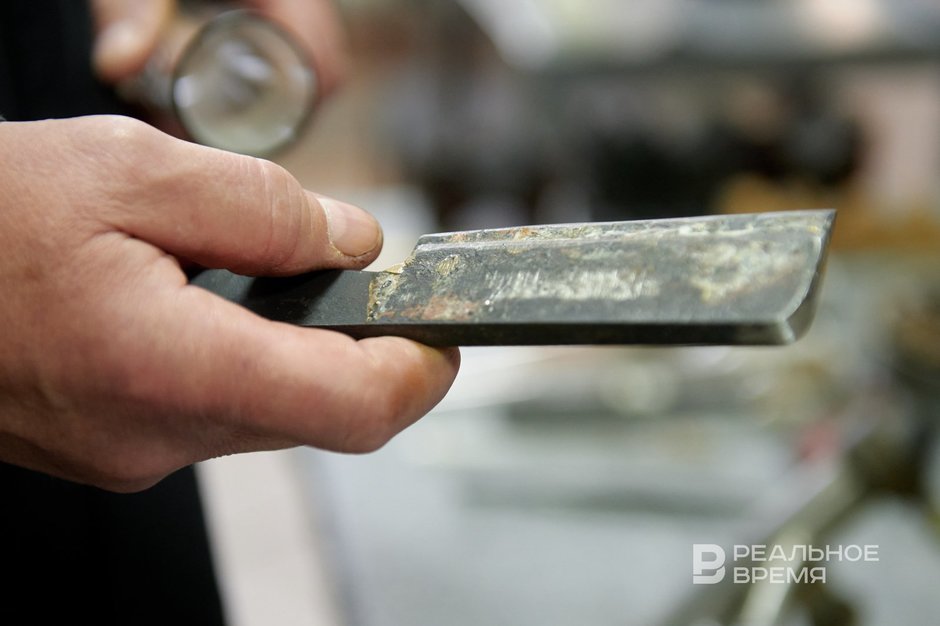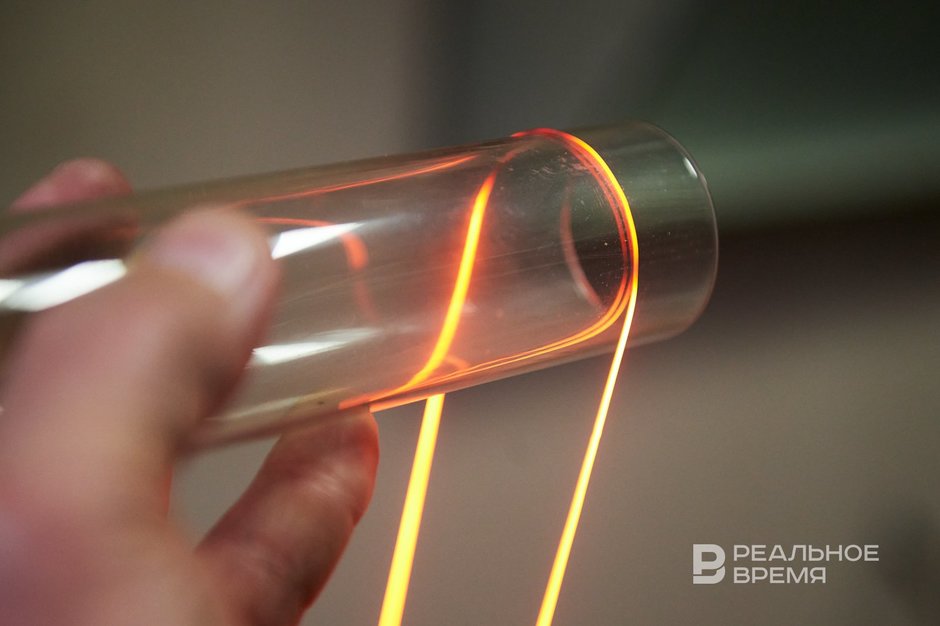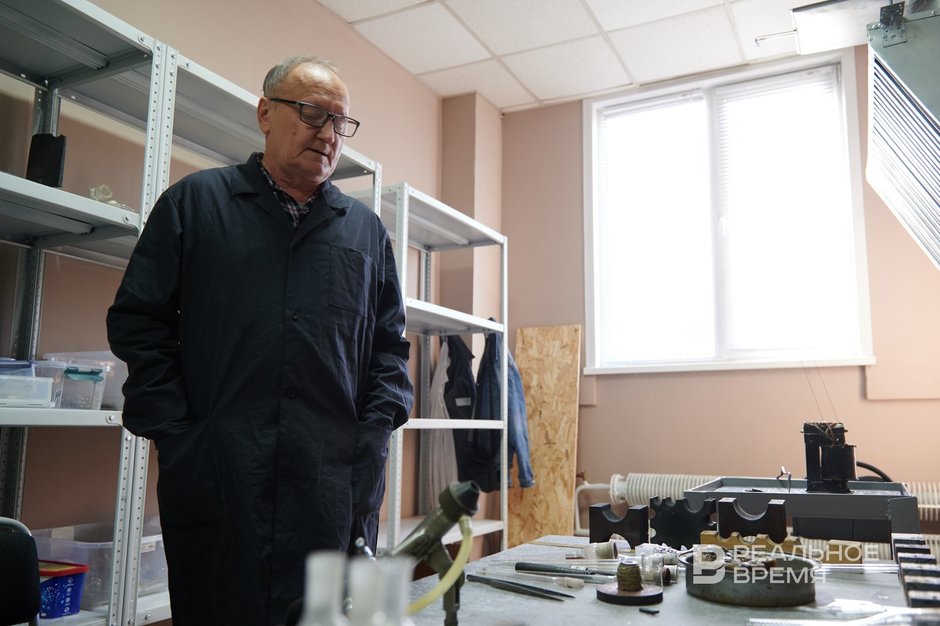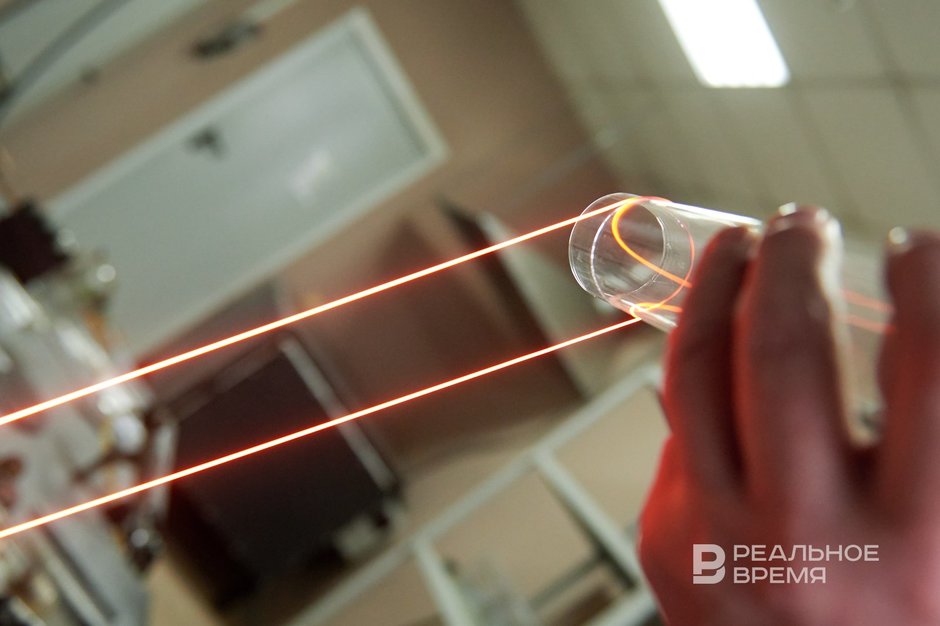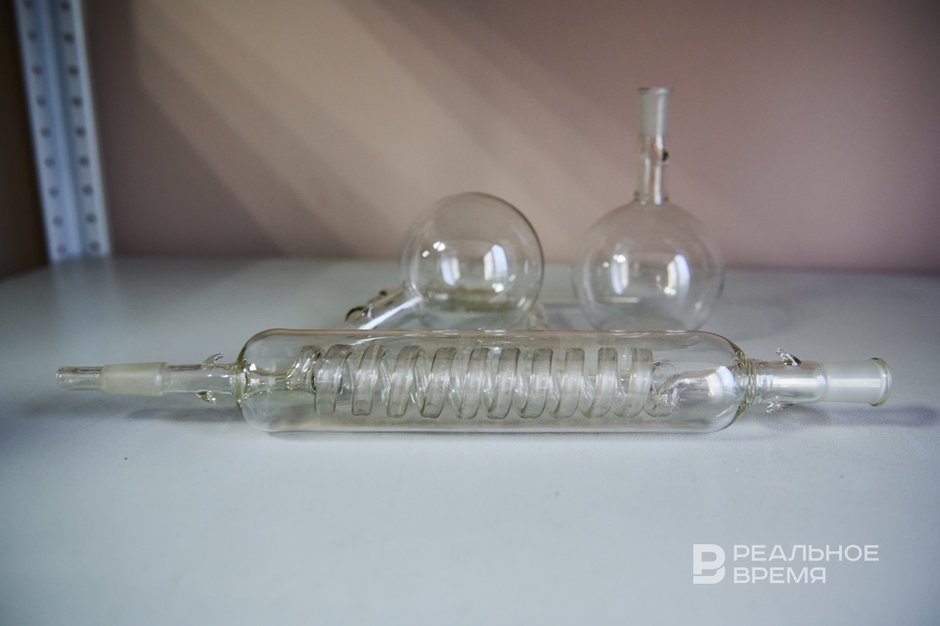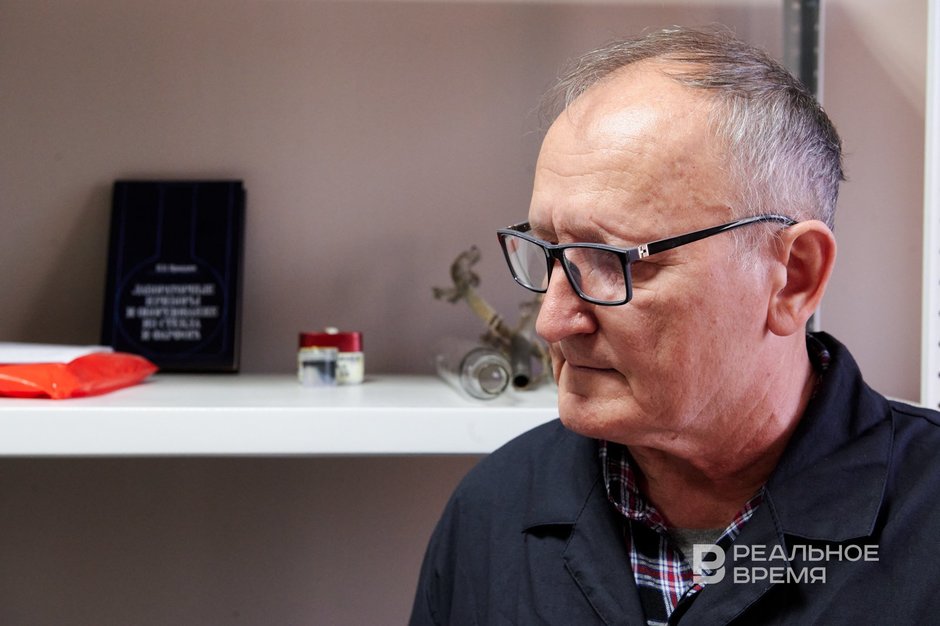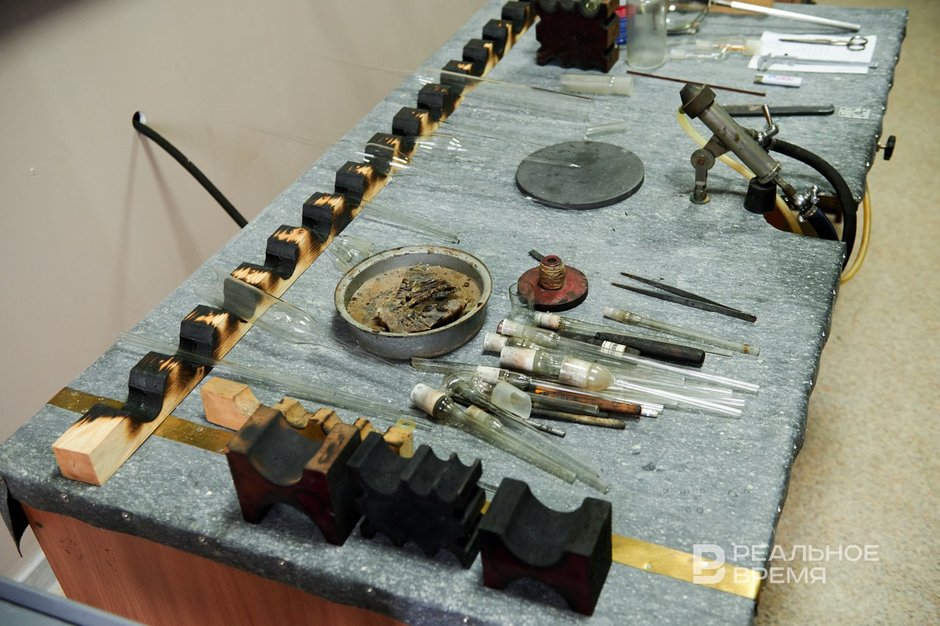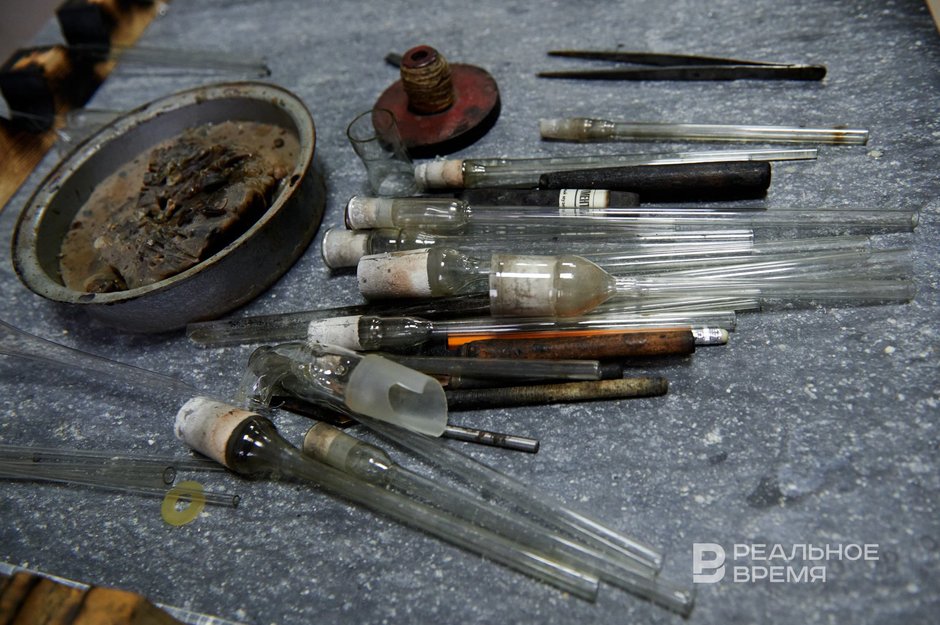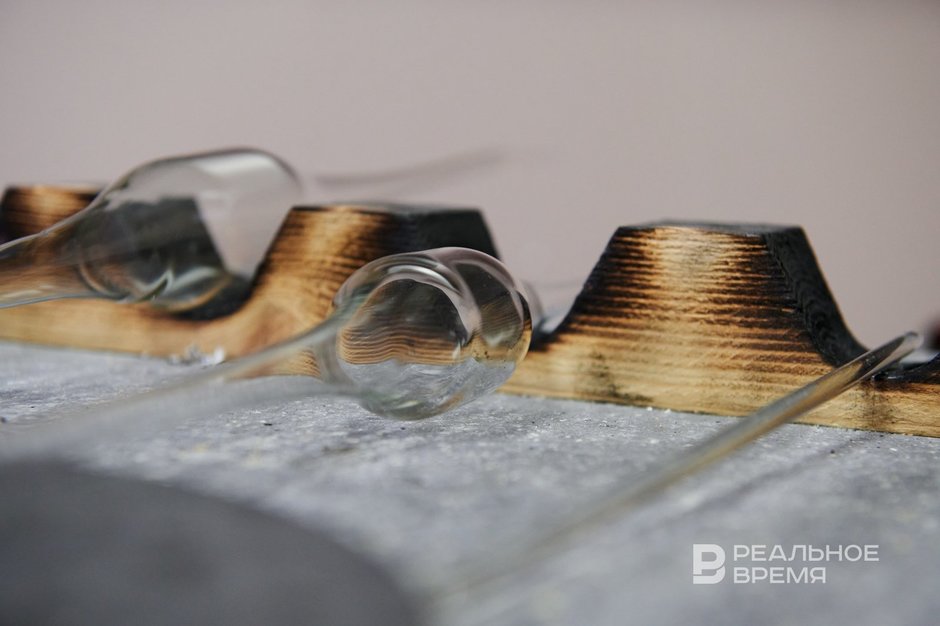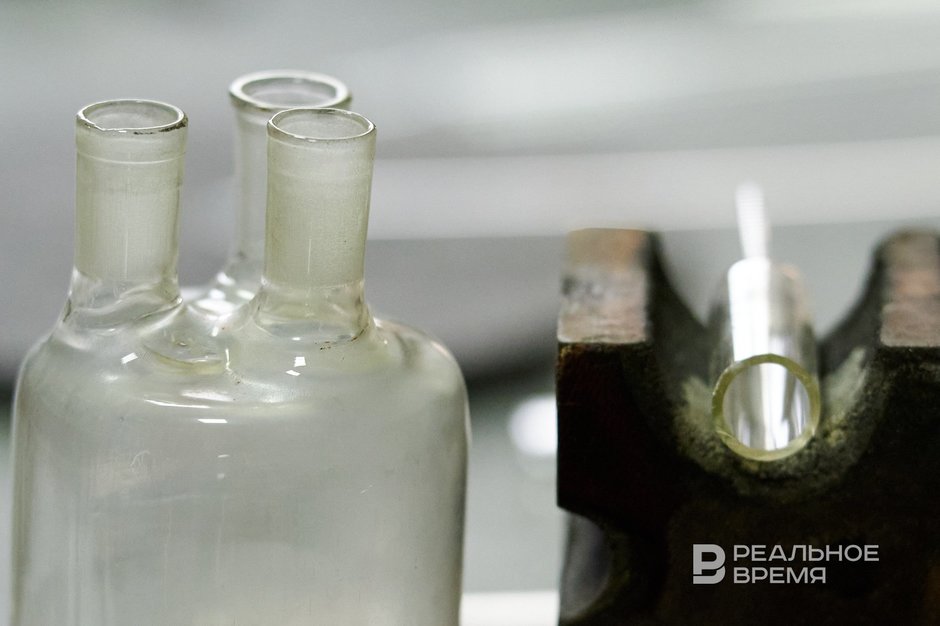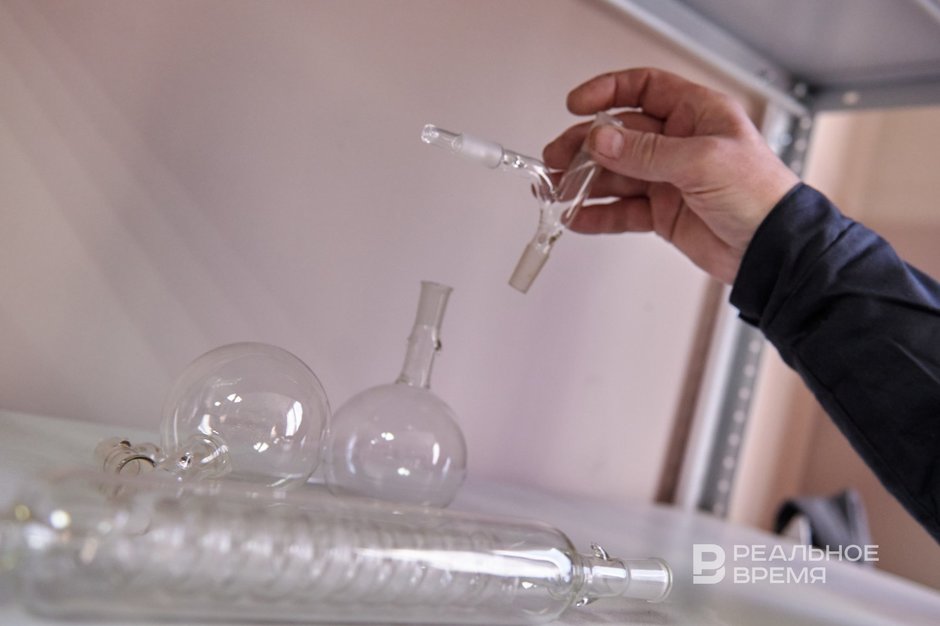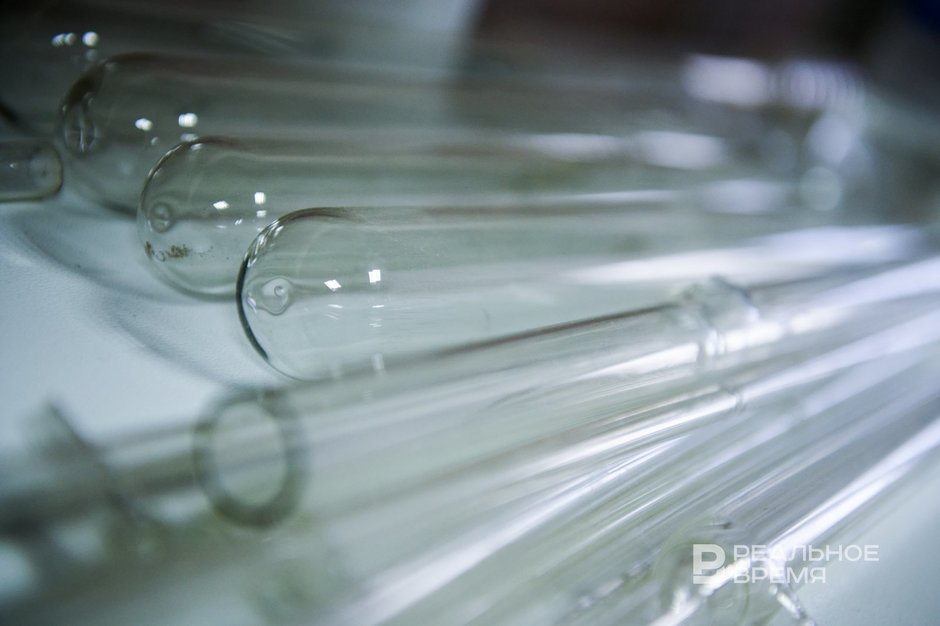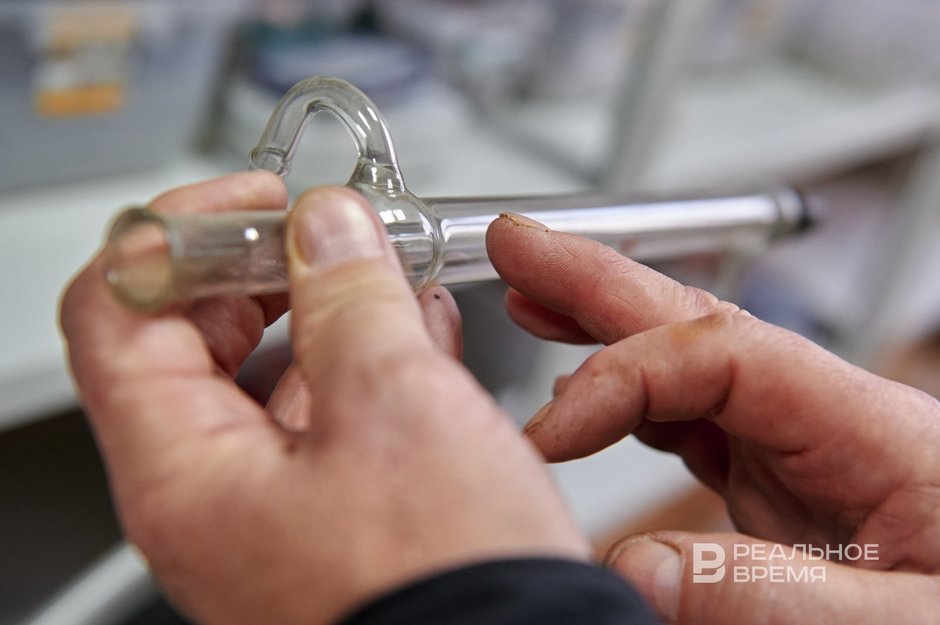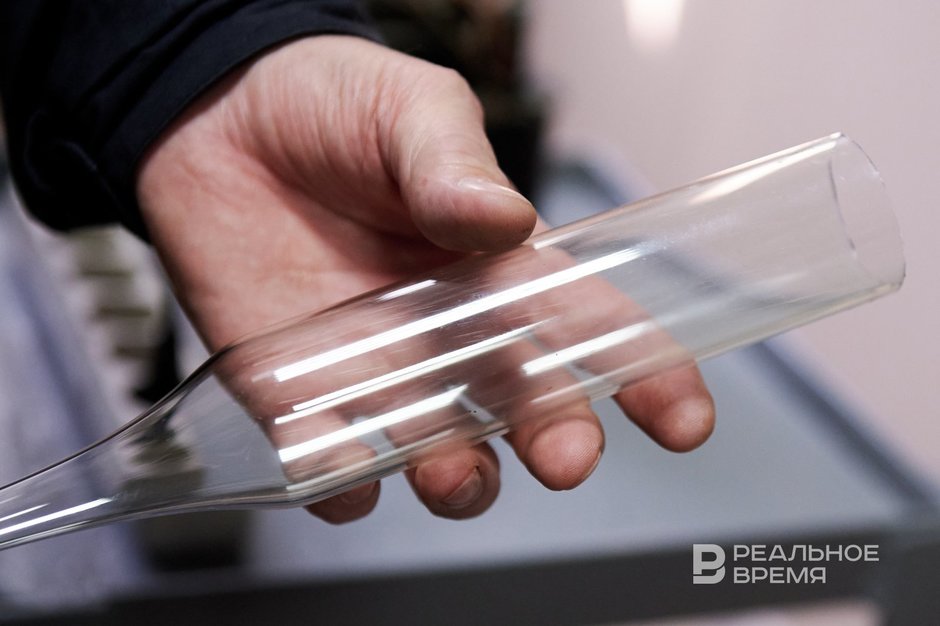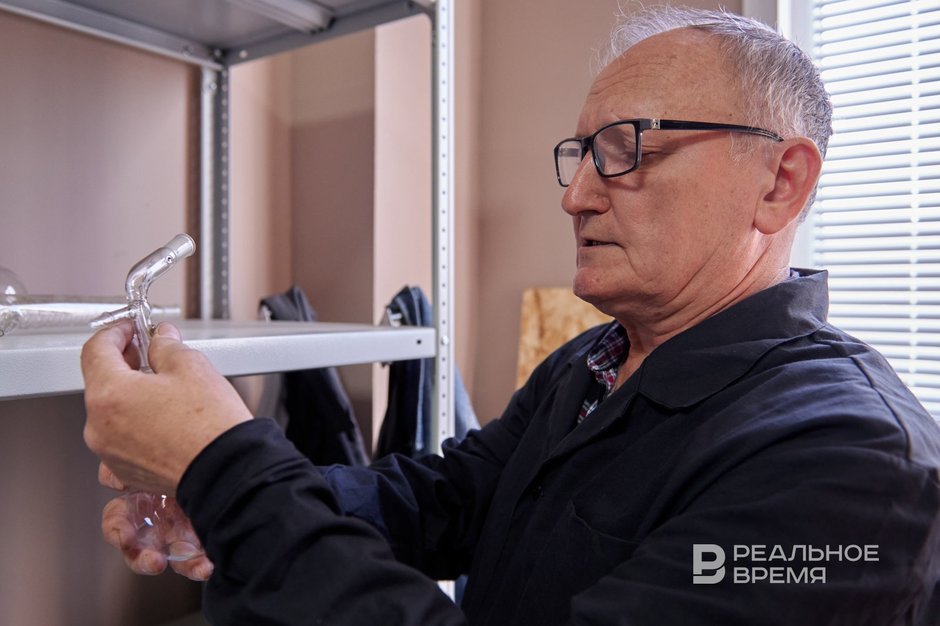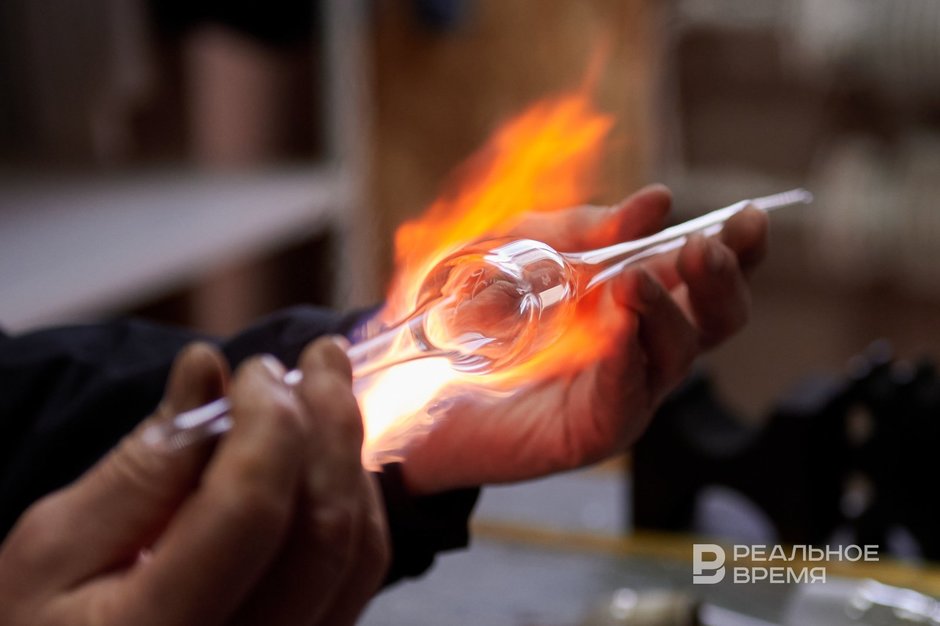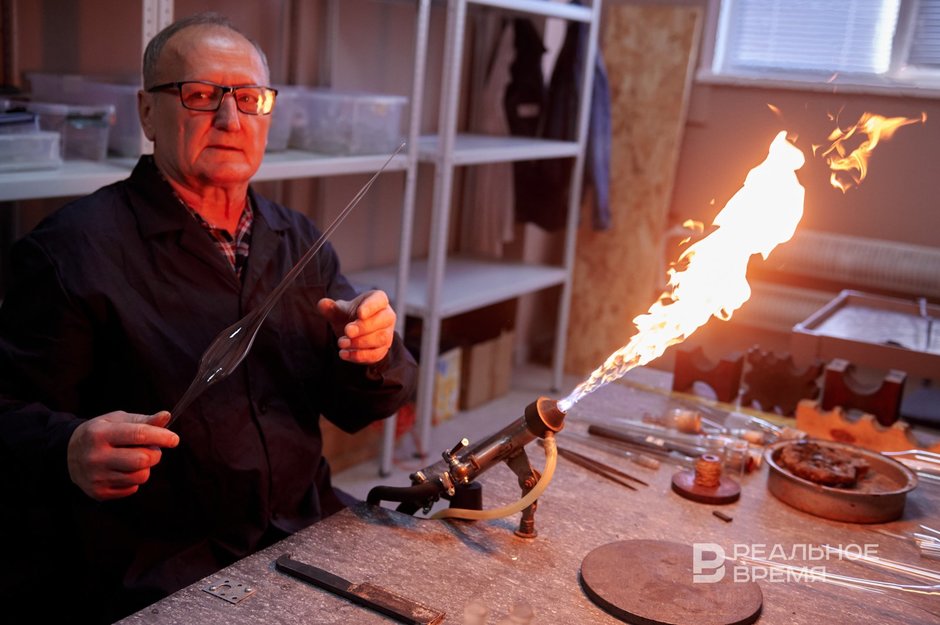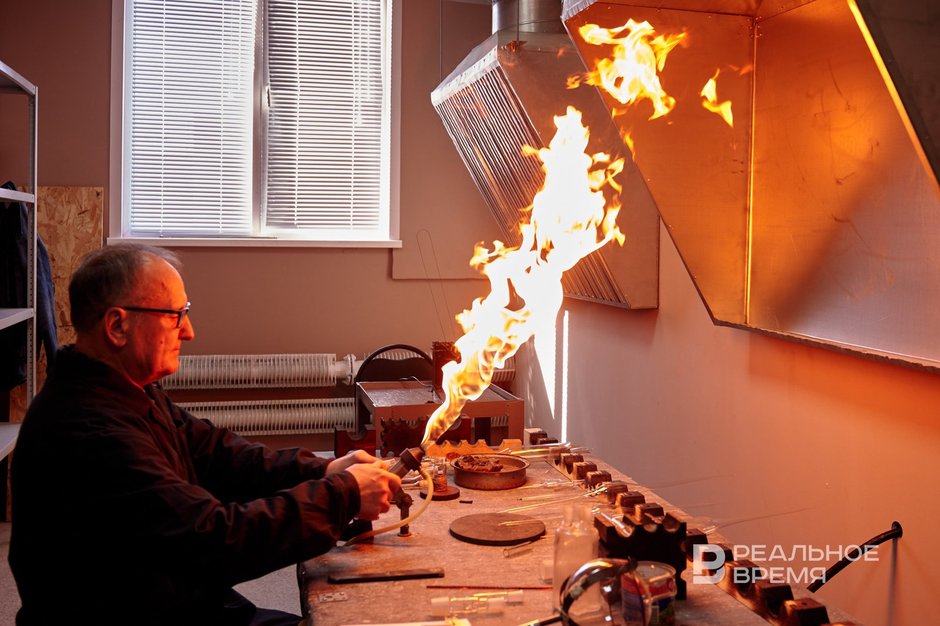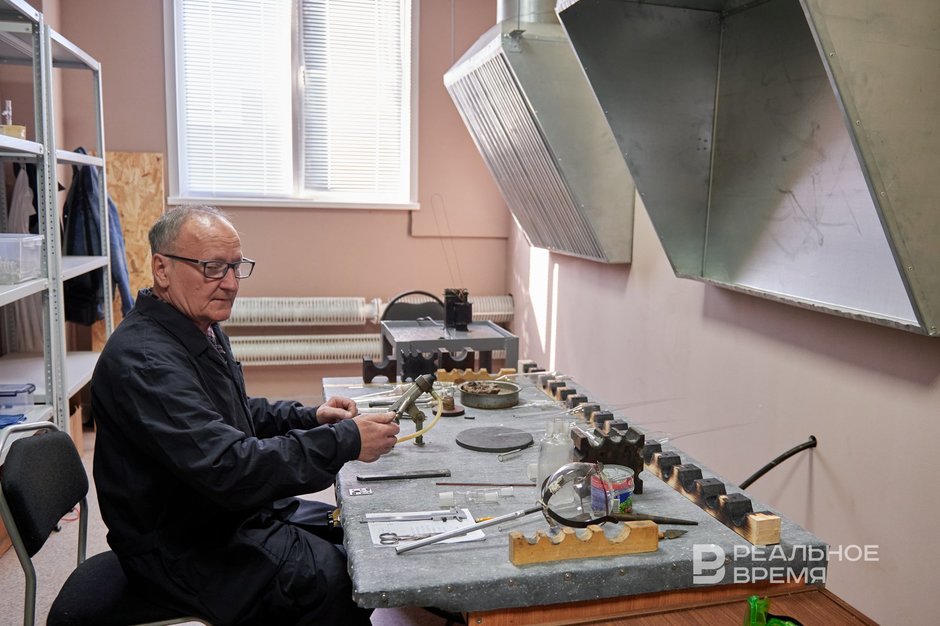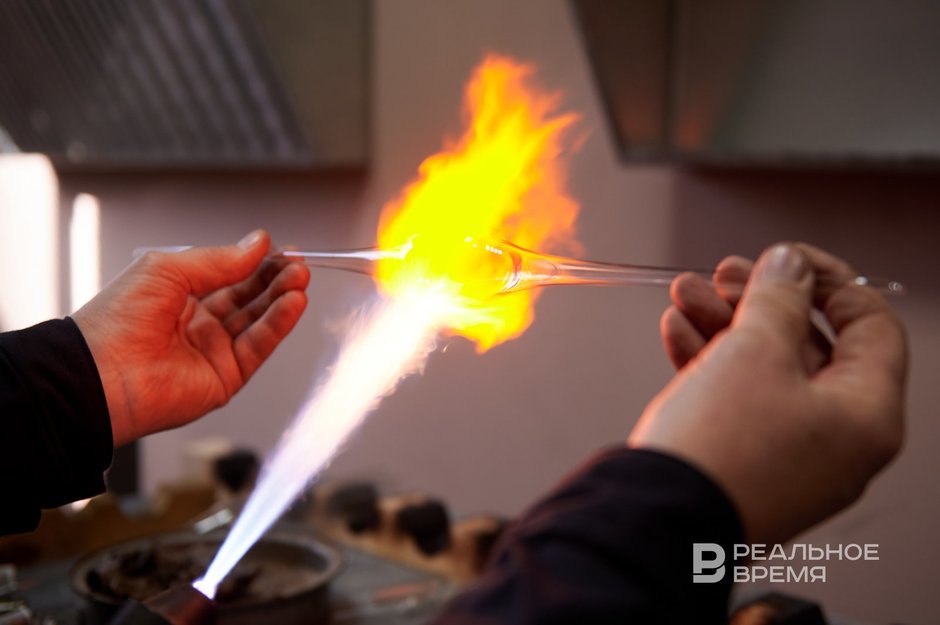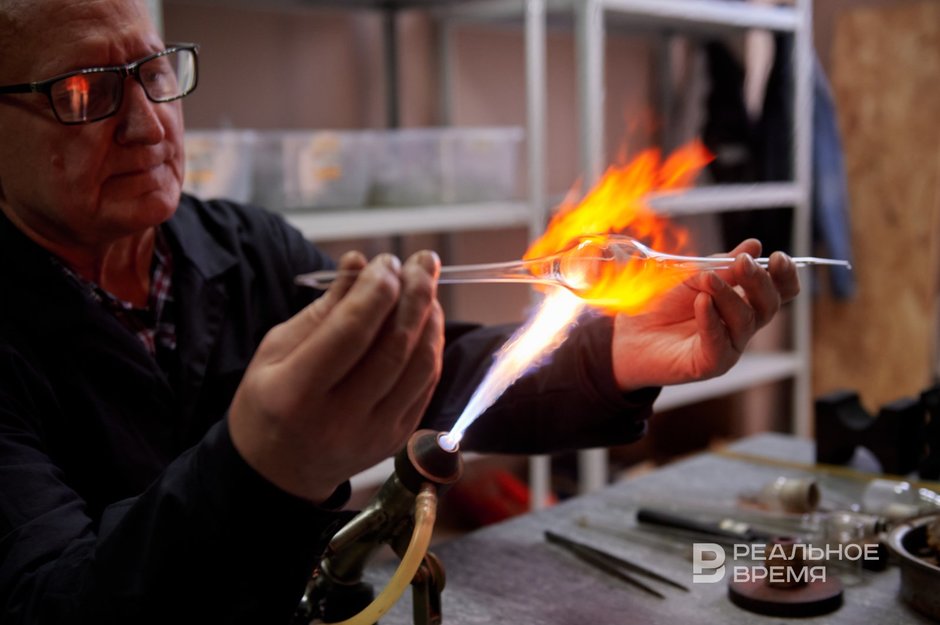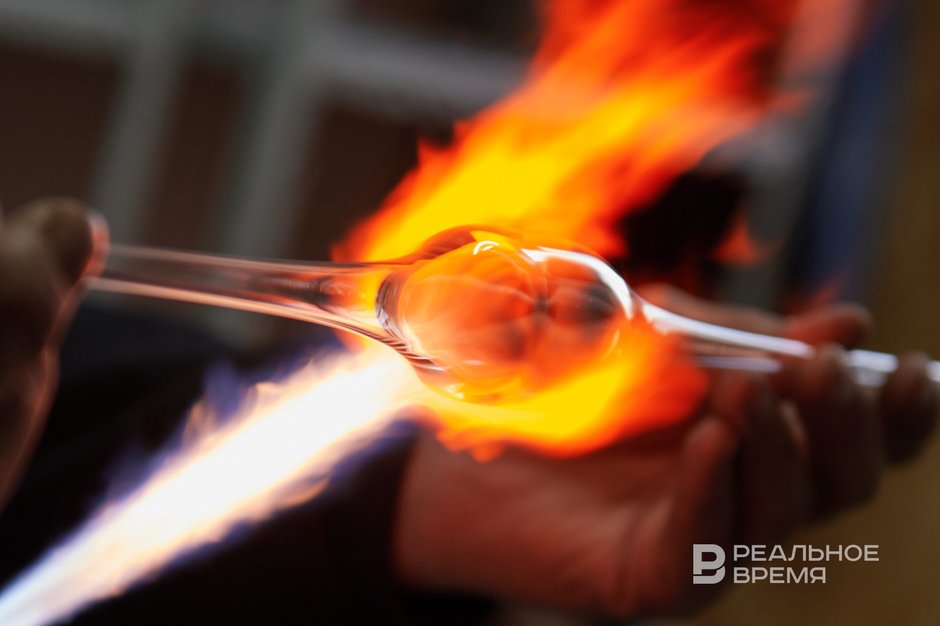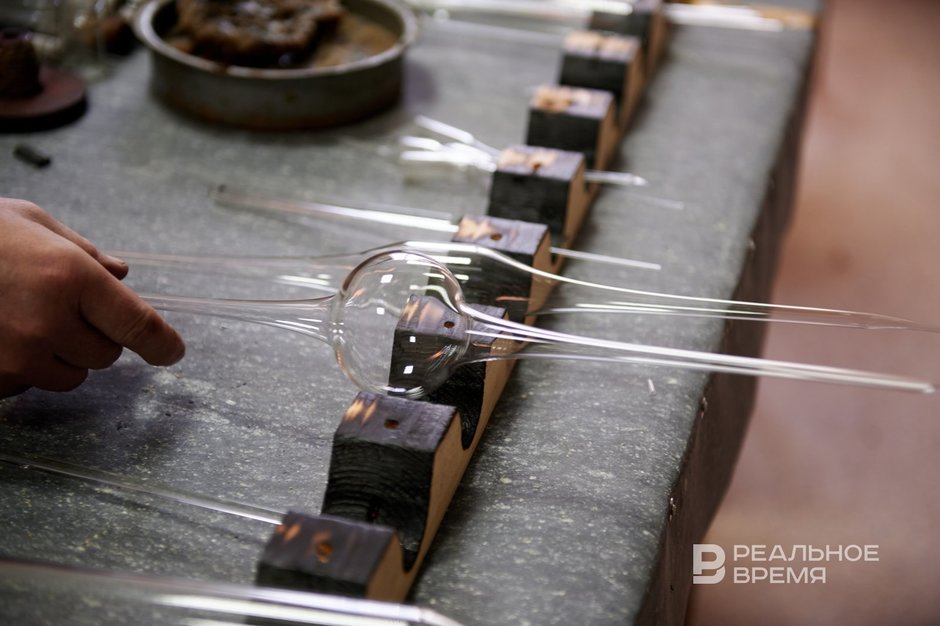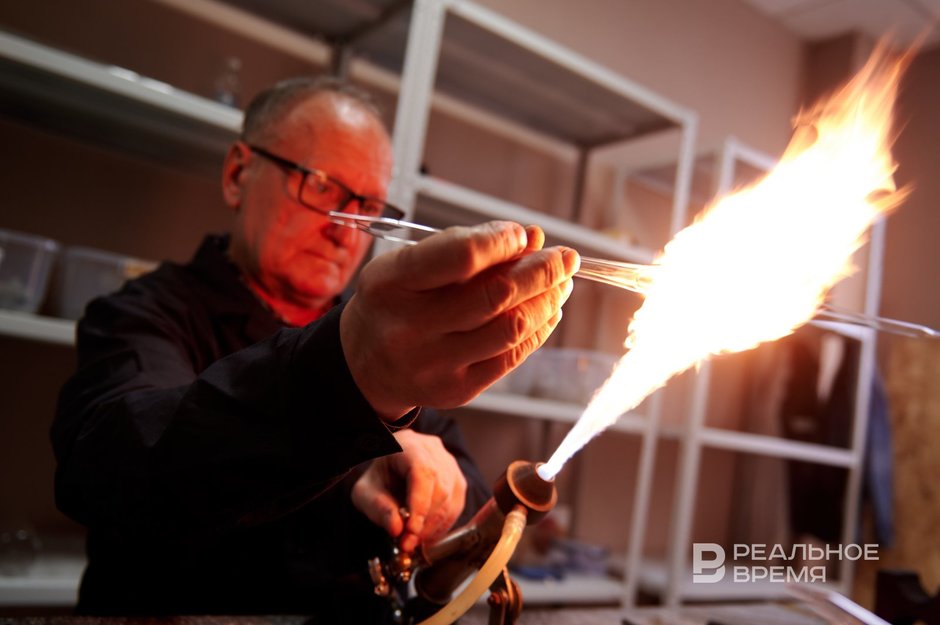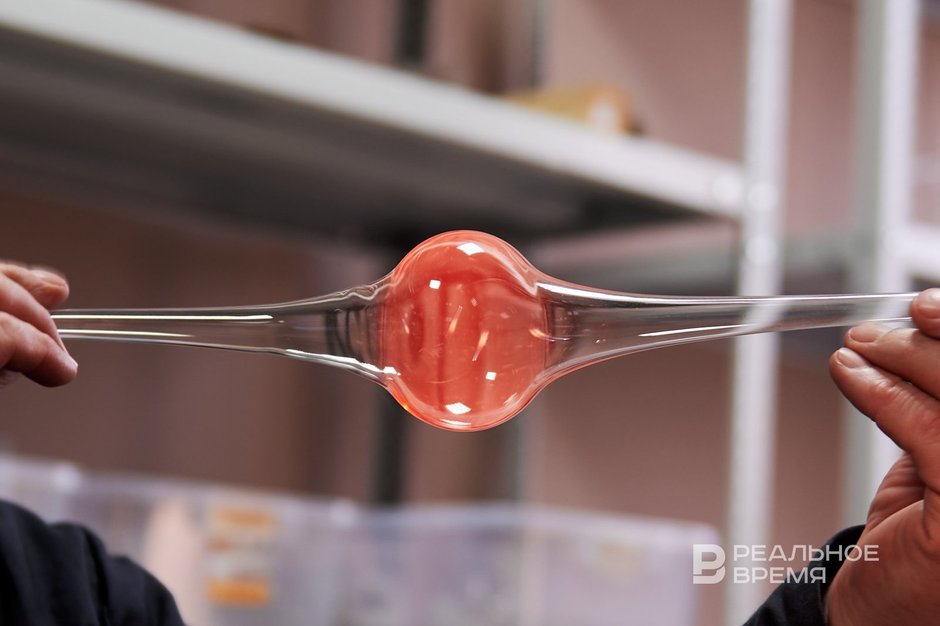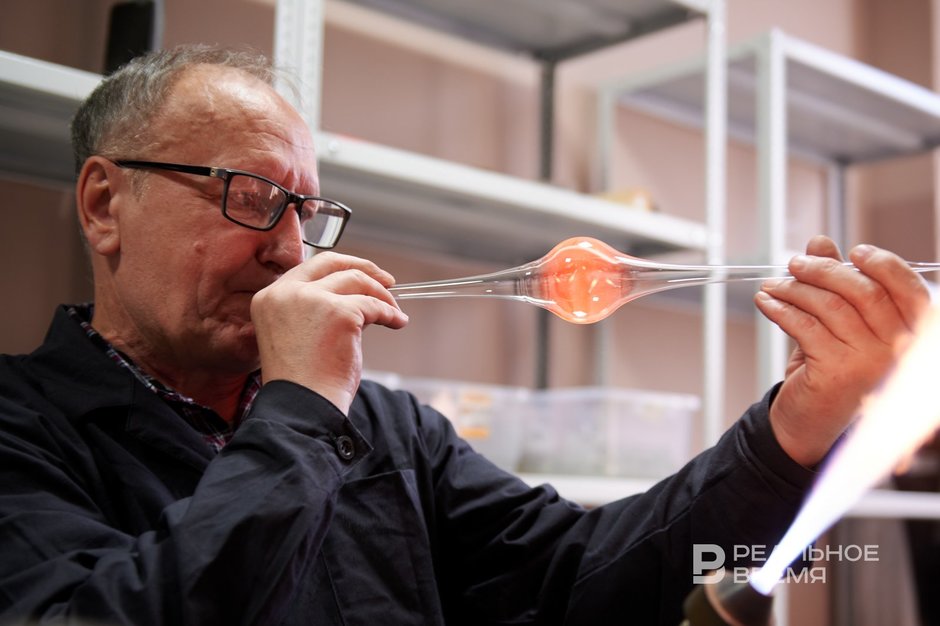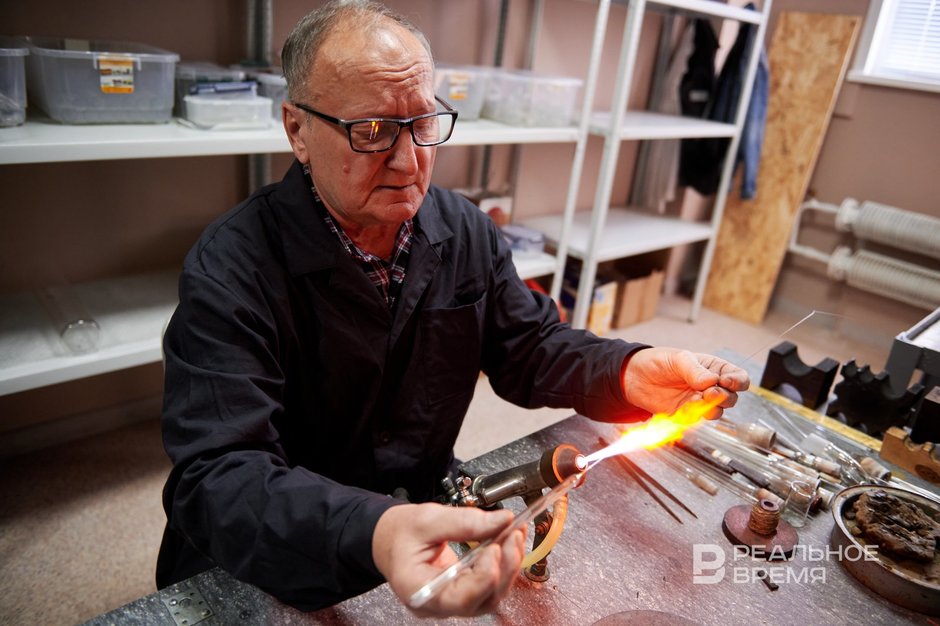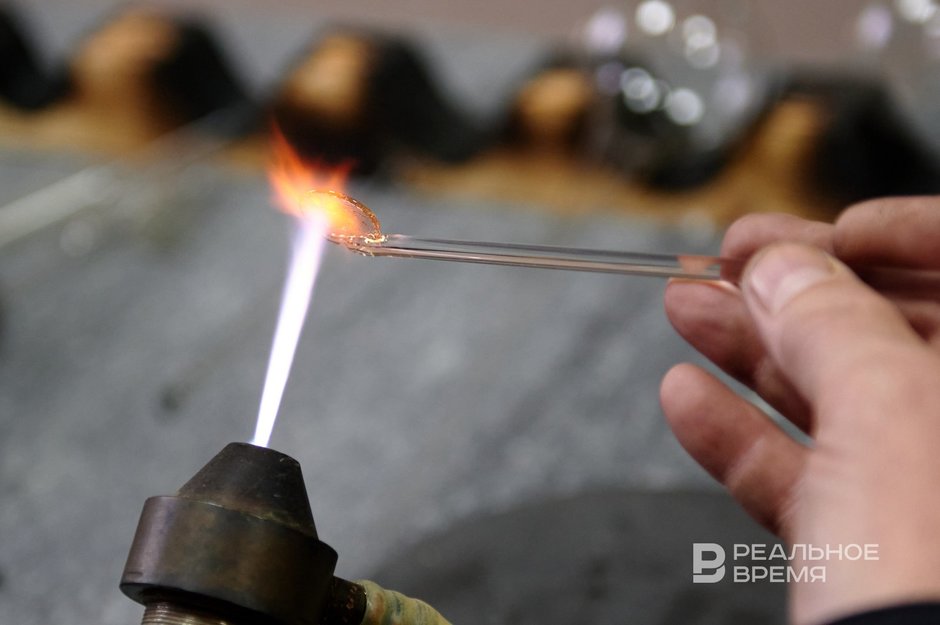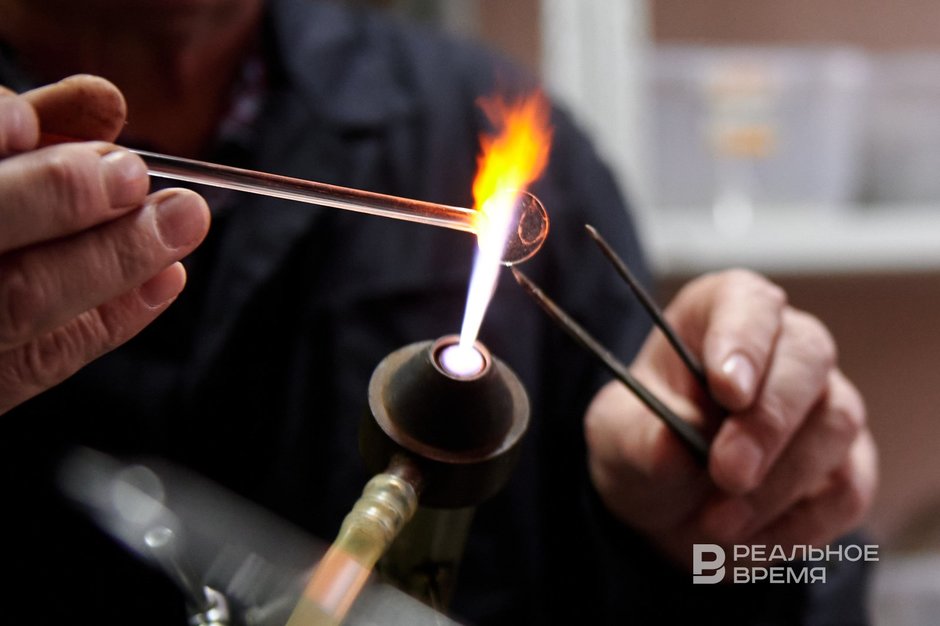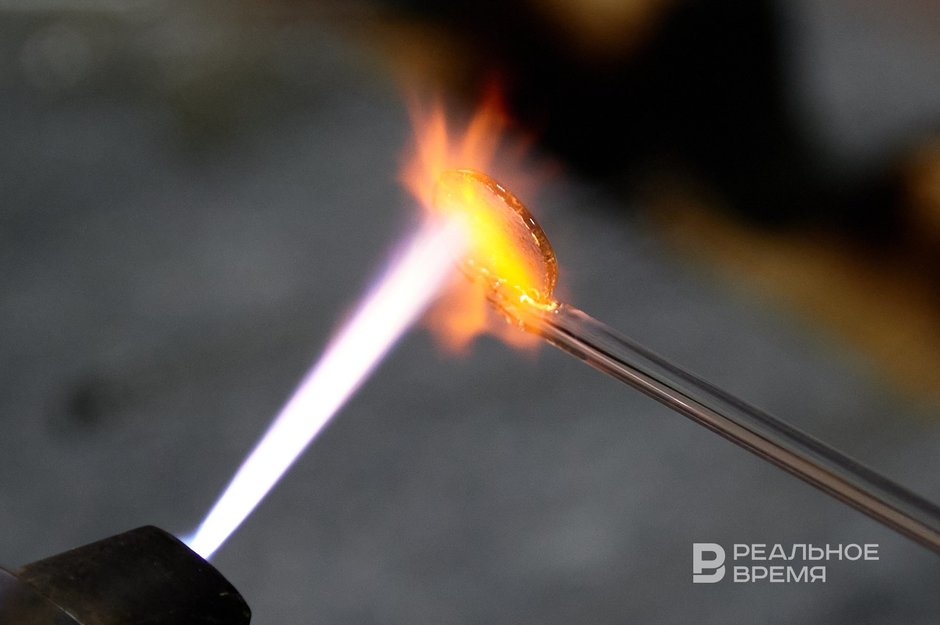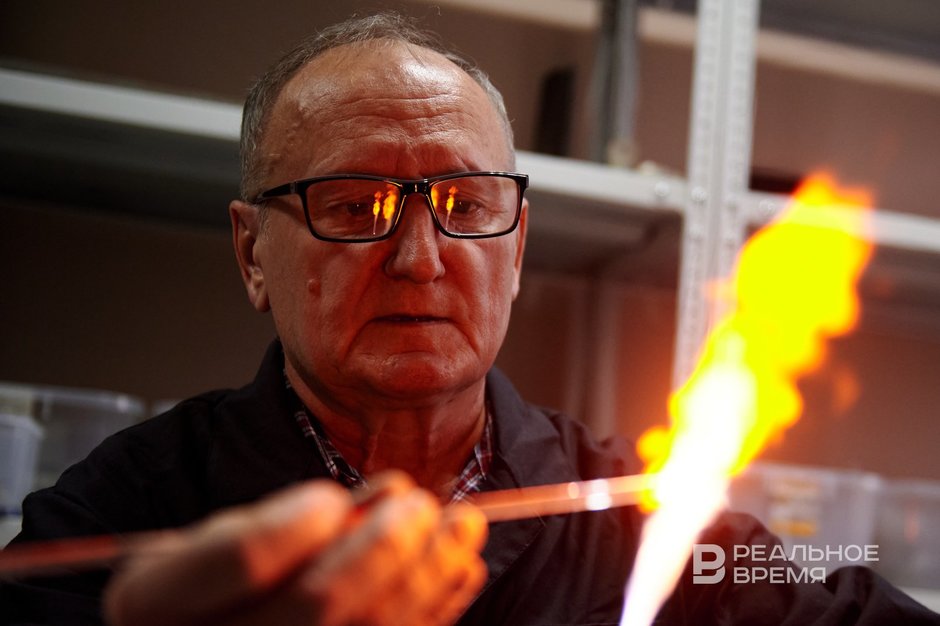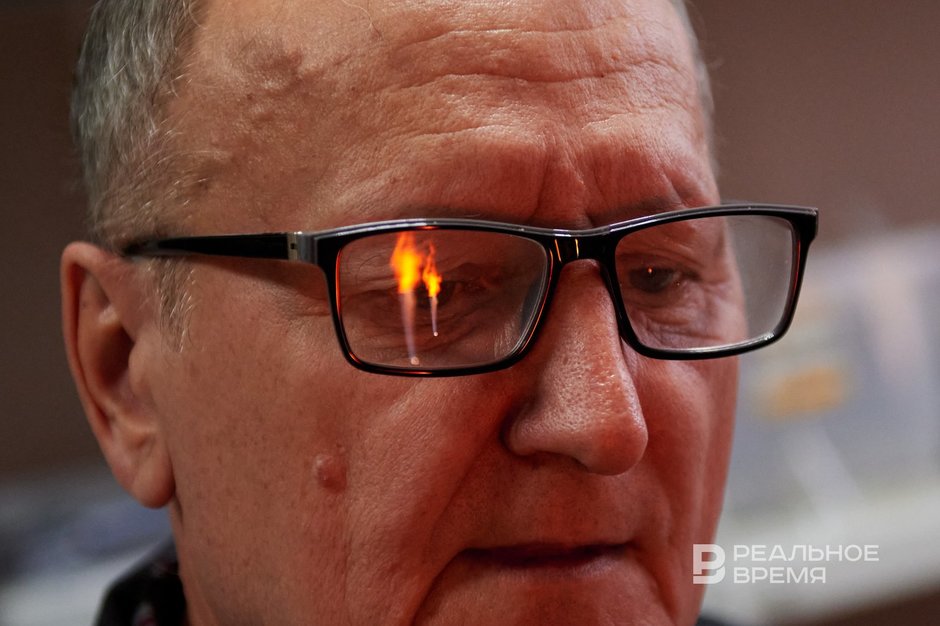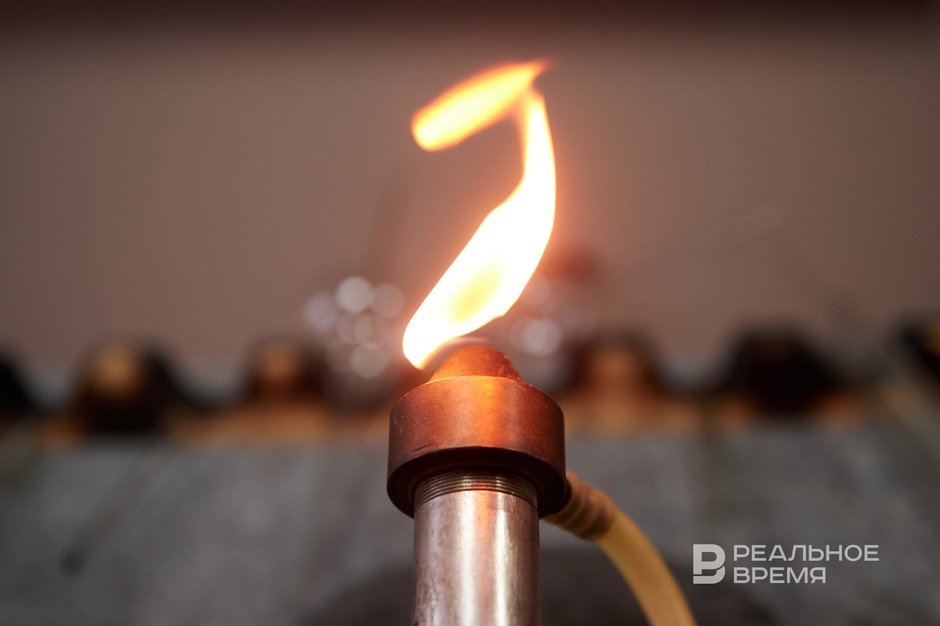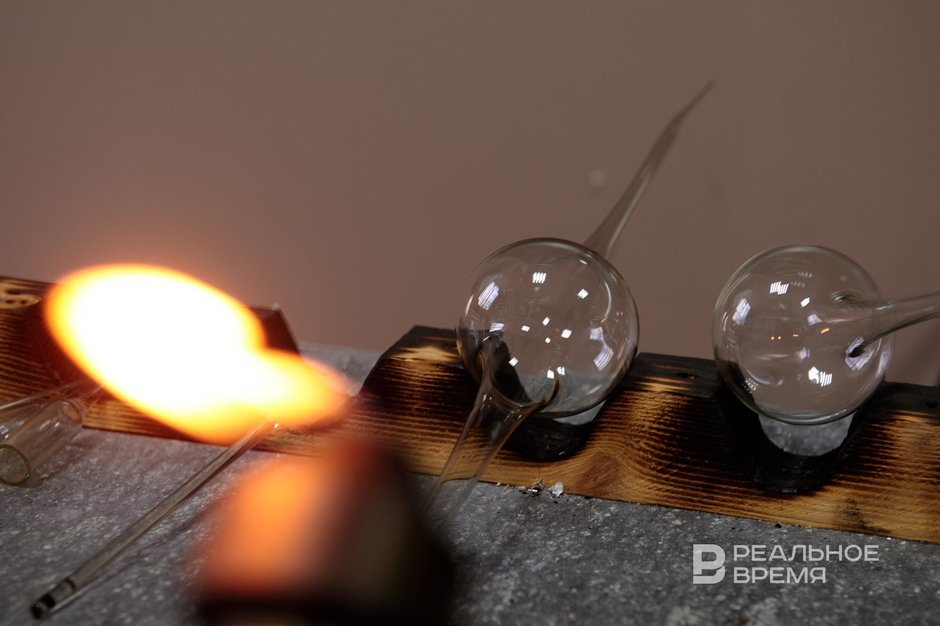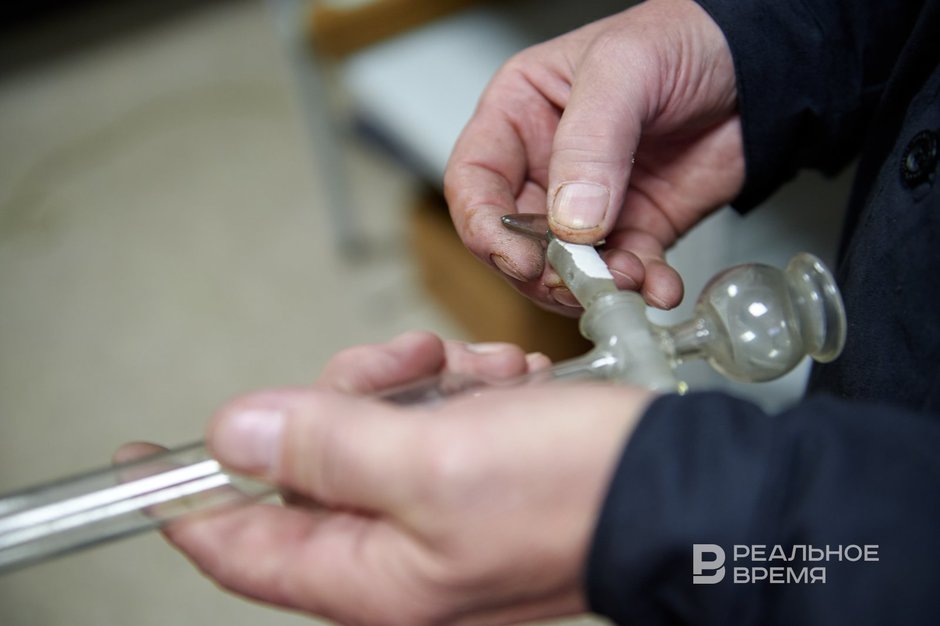Kazan artisans reviving the lost profession of glassblowers
When the rare craft was lost in Tatarstan and how are they trying to revive glassblowing now
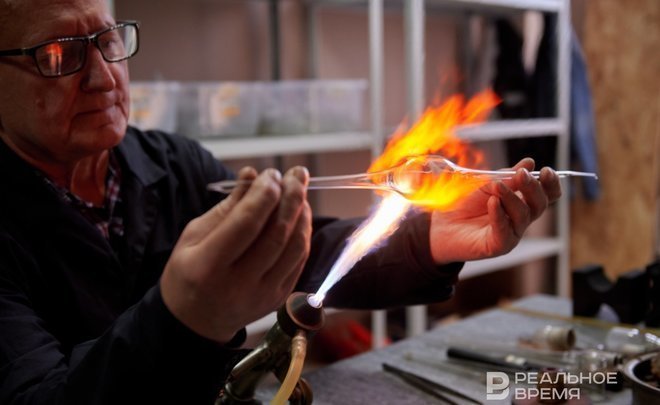
Three decades after glassblowing was practically lost in Tatarstan, Kazan decided to revive the original craft. A glass-blowing workshop has been opened in the city, in which one master with more than 45 years of experience works. About why the rare profession is dying, despite the demand for its products, how to train new personnel in this direction and what are the prospects for the glass-blowing craft — in the material of Realnoe Vremya.
Revival of the dying craft
Since ancient times in Russia, glassblowing skills were at a high level. It began to decline in the 1990s, like many other crafts. Now in Tatarstan, glassblowers can be counted on the fingers of one hand: they are 70-80 years old, many no longer work, so the glassblowing business is gradually dying, experts say.
Alexander Marinin, a glassblower, works in the new workshop. He has been engaged in his craft for more than 45 years. He studied at the Kazan National Research Technological University (KNRTU), and from 1977, he worked in the workshop of the university. Later, he was engaged in the production of neon lamps for several years, and in 2006 he returned to the university. Now he combines work at the KNRTU and in this workshop, but in October he plans to move to a new place permanently.
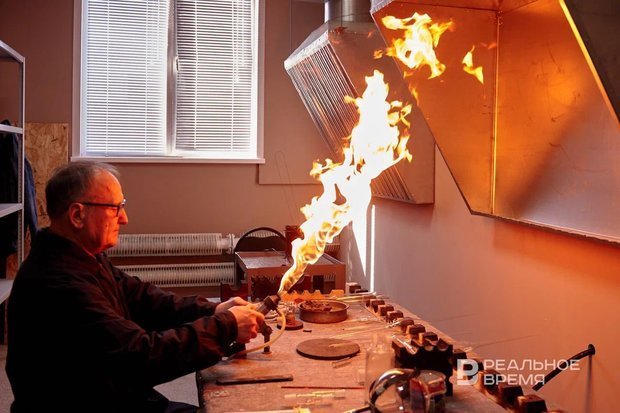
Alexander Marinin said that out of the 16 workshops that existed in Kazan, now there are only three left in the city. These are workshops at the KNRTU, the Arbuzov Institute of Organic and Physical Chemistry and at Kazanorgsintez PJSC. Now a fourth one has appeared in the capital of the republic — at the scientific and technical centre Akhmadullina, where they decided to revive the rare profession.
There are two main types of glass blowers: instrument technician and glass blowers. Marinin belongs to the first. As hey told in the workshop, it was difficult to find this specialist, it turned out thanks to friends from the departments of the KNRTU. But there is no glass blower here: such rare specialists in the republic are 90 years old.
“We can say that in Tatarstan it is an extinct profession," manager of the company Artur Bagaveev stated with regret.
The company dreams of reviving the craft, but so far there are difficulties with the development of glassblowing. Perhaps, it will be possible to agree on the exchange of experience with the Moscow workshop.
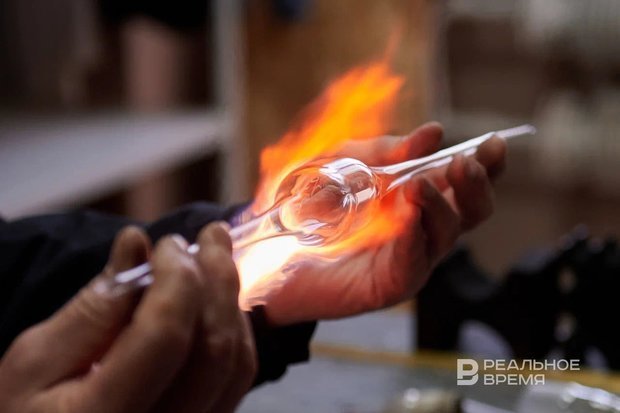
Training of new personnel
It will not be possible to revive the craft without training new personnel. But Alexander Marinin hopes that he will have students:
“It's very good if there are interested people who like it, who have patience, perseverance.
The workshop told that they plan to invite students of chemical departments of universities and colleges to study. To begin with, they will take two apprentices so that the glassblower has time to continue making dishes and pass on knowledge. Newcomers will appear when the volume of orders exceeds the capabilities of the master. According to preliminary calculations, this will happen in a year or a year and a half.
Alexander Ivanovich plans to transfer his skills to future students for at least three years. To become a professional, according to him, it is necessary to study for at least five years. He himself reached the sixth category in seven to eight years.
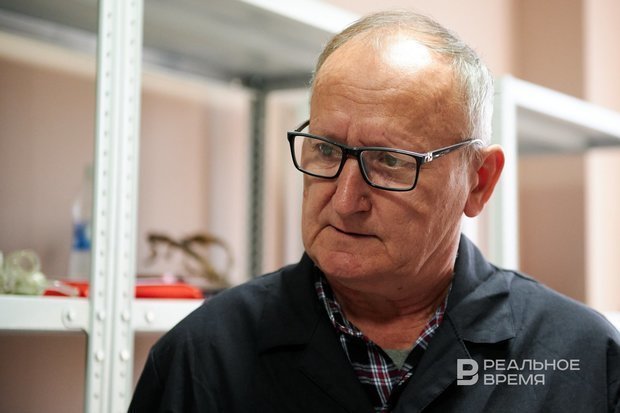
What Kazan glass blowers make
The craft of glass blowers in Tatarstan has declined, but this does not mean that there is no demand for their products, the workshop says. Now the production of glass for laboratories is in great demand, as a free niche has been formed due to the withdrawal of Western companies.
Even before the opening, orders appeared: customers from institutes and chemical companies asked to repair or make laboratory dishes to order. Sometimes they brought antiques: ancient decanters, heirlooms that needed repair. Companies from different regions of Russia already apply to the Kazan workshop, and there are plans to open a large workshop that will cover the needs of not only the Volga region, but also the whole country, the centre reported.
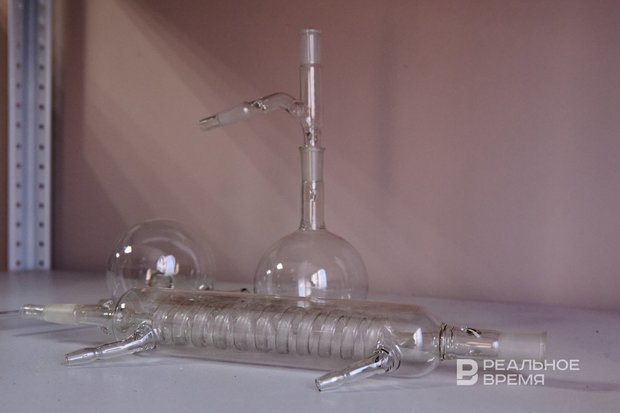
Now the workshop produces a number of products — from elementary chemical glasses and flasks to cone couplings, distillation nozzles and complex devices such as the Liebig condenser. The production of some products, for example, chemical glasses, is now within the power of machine production. However, according to Marinin, this is not a reason to write off the profession of a glassblower: there are dishes that only a human can make. “There are complex devices, it is unlikely that a robot will be able to master it," he stressed.
